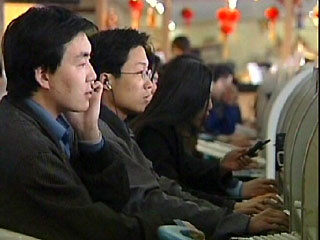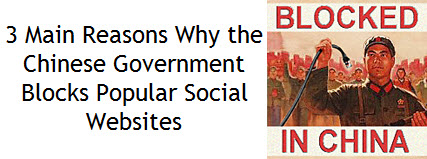 While the world goes gaga over Facebook, China’s netizens swear by Kaixin. Few outside China have heard of Youku, but few within have heard of YouTube. It may be called the World Wide Web, but China’s netizens live in a parallel cyber universe with a complete distinct set of clone websites they have created and embraced. The world pays with Paypal online, China uses Alipay. Millions chat online with ICQ, but Chinese prefer QQ. Baidu, which copied Google’s clean-screen look, is the No. 1 search engine here, taking 60 per cent of the market. Just 25 per cent of Chinese netizens use Google, making China one of the few places on earth where the global behemoth is a loser.
While the world goes gaga over Facebook, China’s netizens swear by Kaixin. Few outside China have heard of Youku, but few within have heard of YouTube. It may be called the World Wide Web, but China’s netizens live in a parallel cyber universe with a complete distinct set of clone websites they have created and embraced. The world pays with Paypal online, China uses Alipay. Millions chat online with ICQ, but Chinese prefer QQ. Baidu, which copied Google’s clean-screen look, is the No. 1 search engine here, taking 60 per cent of the market. Just 25 per cent of Chinese netizens use Google, making China one of the few places on earth where the global behemoth is a loser.
As Google China president Lee Kaifu said last month when he launched its free music downloading site: “Today, we have completed our product line and there is no reason any more that our Chinese users would refuse to use our service.” In China, most global Internet giants live miserable lives. Auction giant eBay, which once controlled as much as 90 per cent of China market, was thrashed so badly by Taobao that it shut its main China website in 2006. Social networking titan Facebook is ranked poor 55th in terms of overall cyber traffic in China. Its faithful China copy, Kaixin, came in 15th.

In contrast, the Chinese websites have grown into local giants. Sina and Baidu are listed on Nasdaq, and last year, Baidu registered income of 3.1 billion yuan, an increase of 83 per cent from that of the previous year. A key reason for the failure of these global names lies in their defeat in the word-of-mouth contest. Nine out of 10 new search engine users, for example, are recommended to use Baidu, according to China media reports. Kaixin sends e-mail to everyone on the registered user’s MSN contact list, luring more people to join because their friends are already part of the network.
“Most of my friends in China are on Kaixin and so I signed up,” said Beijinger Wu Yuanchun, 29, who is working in Singapore. “When I told them about Facebook, it drew a blank. Very few of them have heard of it.” Language plays a part in Chinese websites’ popularity. Their online addresses are easily found because most of the URLs are made up by their hanyu pinyin names. In contrast, Chinese users not proficient in English have trouble spelling Facebook and YouTube. The use of simple and catchy Chinese words as brand names – like Kaixin (“happy”) and Taobao (“treasure search”) – help consumer brand identification.
Chinese websites are also better attuned to local tastes and preferences. Youku is packed with Chinese drama serials, Hollywood sitcoms and even popular Singapore soap opera The Little Nyonya – videos of which are not found on YouTube because of copyright issues. And until the recent addition by Google, Baidu’s main edge over it was its free, and unauthorized, music downloading links. A recent survery showed that more than 86 per cent of the 300 million netizens here downloaded music from the Internet last year.
Unlike the big global giants, Chinese websites have fewer problems with copyright issues. China’s lax copyright laws also make it difficult for these international brands to sue their Chinese copycats. There is also a darker reality behind the rise of the Chinese copycats. Faced with stringent censorship by the Chinese government, international websites have been blocked for carrying content critical of the communist regime.
Access to the likes of Google, YouTube and Wikipedia have all been blocked at some point in the last few years by the infamous Great Firewall of China. All Chinese companies, on the other hand, are required by state regulators to censor users’ content so as to keep their business licenses. The censorship slows down download speed of international sites, driving even more users to the local sites. This political censorship environment, said Professor Xiao Qiang, who runs the China Internet Project at the University of California, Berkeley, has given the Chinese firms a “competitive edge”.
“In other words, the Chinese government treats Chinese information and communication technology companies as more ‘politically trustworthy’, which not only forces international companies to adopt local censorship policies, but also fundamentally handicaps them in competition with Chinese homegrown clones in terms of domestic marketing,” he added.
Google acquiesced to the Chinese censors with a Google.cn version in 2006, which filters out politically sensitive terms. A search for “Tiananmen” on Google.cn throws up a link to the official Tiananmen management office site, while Google.com’s top item is a Wikipedia entry on the 1989 Tiananmen crackdown. This helped Google solve its sluggish speed in China, but compromised its motto of “Don’t Be Evil” and its biggest edge over Baidu – a search engine beyond the reach of the Chinese government.
Google co-founder Sergey Brin has acknowledged that the compromise might have been a mistake. He said “Perhaps now the principled approach makes more sense.”
Â
Article Written By PEH SHING HUEI of the Straits Times 20th April 2009
